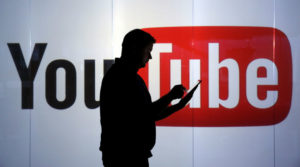
This week, we have seen brands across the UK pull their advertising from the Google platform due to adverts being listed on extremist and otherwise unsavoury websites.
This inertia now creeps quickly to the U.S. where companies such as A&T, Verizon, Enterprise and GSK also cease their Display advertising for an unknown time.
So how has this happened and why now? Has this always been a problem or has Google changed something that has had a negative impact all of a sudden?
The story is still unfolding but the likelihood is that this has been happening with Display advertising for many years. The issue is now that the noise around “Fake News”, it’s impact on public opinion and how it helps shape political positions is getting far greater scrutiny than ever before.
Brands have never wanted to be associated with websites that are not aligned with their product or service and certainly not with placements that will tarn the perception of their brand in anyway.
However now we have the likes of Breibart, a reasonably acceptable news outlet some may say, but with “extreme” views that has been shot into the spotlight. Breibart runs Display ads heavily across their site and no doubt, it is a large revenue stream for the company. However, brands are now hyper sensitive to such sites that may directly or indirectly promote fake news or even in extreme cases, end up funding terrorist organisations.
Take care where your ads are shown
Brands are right to pull their campaigns, but in truth, they should have been more aware of where exactly their adverts were being shown; or at least marketeers should have been more prudent when running their campaigns. The truth here is that making a quick buck led to marketeers running campaigns without due diligence but managed to get away with it until now. But it is Google, a self declared technological firm rather than a media outlet, that must take the blame.
How this will all play out really depends on how much brands will miss the revenue they have traditionally relied upon from Display advertising. Google no doubt will make a big noise about improving placement available on their network but in truth, given the $70B+ they make each year from Display advertising, missing a few brands for an expected short time will not impact them negatively in the long term.
Ideally, the outcome will be positive where-by Google and others will clean up their placement options and restrict extremest, racists websites from profiting from honest advertising.








